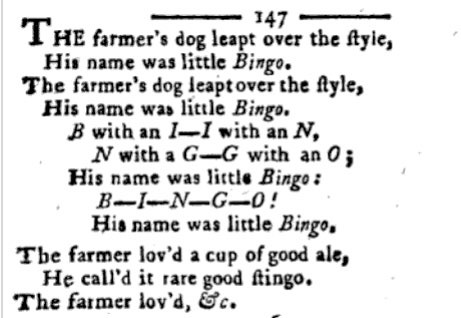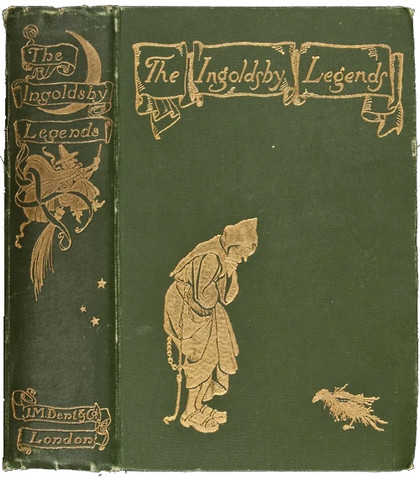“There was a farmer who had a dog and Bingo was his name-o.” This classic nursery rhyme is instantly recognizable and loved by children around the world. But have you ever stopped to wonder about the origins of this catchy tune and the story behind Bingo? For generations, children have clapped and sung along, but the true history of the “Bingo” nursery rhyme song is richer and more intriguing than you might expect. Let’s dive into the archives and explore the fascinating journey of this beloved children’s song.
Was Bingo the Farmer or the Dog? Settling the Great Debate
One of the first questions that often arises when considering the “Bingo” nursery rhyme song is the identity of Bingo himself. Is Bingo the farmer, or is he the farmer’s canine companion? The most straightforward reading of the lyrics points clearly to one answer: Bingo is indeed the dog.
Consider the opening line: “There was a farmer who had a dog, And Bingo was his name-o.” The grammatical structure here is key. While the placement of a comma could theoretically change the meaning, as the original article playfully points out, the absence of a comma after “farmer” strongly suggests that “Bingo” is the name of the dog, not the farmer. The rhyme is introducing a farmer and his dog, named Bingo. This interpretation aligns with the common understanding and imagery associated with the song, where Bingo is almost universally depicted as a dog.
 The Original words to Bingo, the nursery rhyme.
The Original words to Bingo, the nursery rhyme.
From Scottish Drinking Song to Children’s Favorite
The journey of the “Bingo” nursery rhyme song from its origins to its current status as a children’s classic is quite remarkable. Far from being initially intended for kids, experts believe the melody of “Bingo” has roots in Scotland and emerged as a drinking song. Historical records show that a version of the song was documented as early as 1780 by William Swords, an actor. In its early forms, it’s believed that the song served as a convivial drinking pastime, with participants possibly taking a drink at the end of each verse, adding a playful and rhythmic element to social gatherings.
Over time, this lively tune transitioned from pubs and social circles into the realm of children’s entertainment. It evolved into a popular nursery rhyme and a fun, interactive counting game. The now-familiar spelling out of B-I-N-G-O in the first verse, gradually replacing letters with claps in subsequent verses, transformed the song into an engaging activity for learning letters and rhythm. This adaptation highlights the fascinating way folk songs and melodies can evolve and be repurposed across different social contexts and generations.
 The Ingoldsby Legends
The Ingoldsby Legends
“A Franklyn’s Dogge”: A Victorian Parody and the Song’s Enduring Appeal
The “Bingo” nursery rhyme song even inspired literary parodies, demonstrating its cultural presence in the 19th century. Richard Barham, a Victorian writer and clergyman known for his humorous works, penned a parody titled “A Franklyn’s Dogge.” This playful take on “Bingo” was included in his collection The Ingoldsby Legends published in 1840.
Barham’s parody was so skillfully crafted in an archaic style that many were initially convinced it was a genuine medieval poem. This humorous imitation underscores the widespread recognition of the “Bingo” tune and its integration into popular culture. It also speaks to the song’s enduring appeal, allowing it to be both a children’s staple and a source of witty literary commentary.
While the “Bingo” nursery rhyme song has a rich history to uncover, its primary purpose remains bringing joy and musicality to young children. For those looking to further nurture a child’s musical journey beyond traditional rhymes, resources like Soundbops offer innovative and engaging ways to explore music creation and learning. However, the simple, catchy charm of “Bingo” continues to resonate, proving its timeless appeal in the world of children’s songs.
